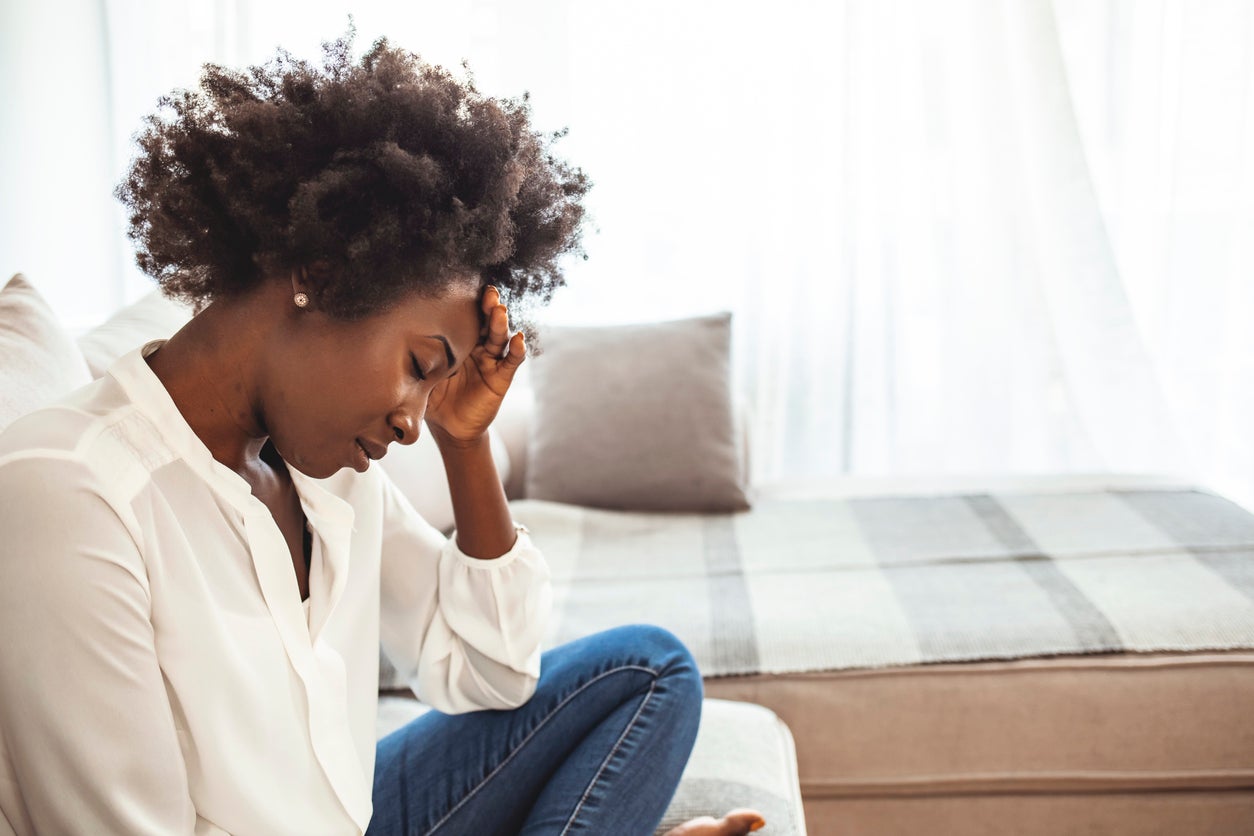Black women deserve better reproductive healthcare – and not just when we’re pregnant
It’s unacceptable that so many women of colour are suffering lifelong health issues relating to pregnancy


Your support helps us to tell the story
From reproductive rights to climate change to Big Tech, The Independent is on the ground when the story is developing. Whether it's investigating the financials of Elon Musk's pro-Trump PAC or producing our latest documentary, 'The A Word', which shines a light on the American women fighting for reproductive rights, we know how important it is to parse out the facts from the messaging.
At such a critical moment in US history, we need reporters on the ground. Your donation allows us to keep sending journalists to speak to both sides of the story.
The Independent is trusted by Americans across the entire political spectrum. And unlike many other quality news outlets, we choose not to lock Americans out of our reporting and analysis with paywalls. We believe quality journalism should be available to everyone, paid for by those who can afford it.
Your support makes all the difference.Miscarriage is one of the most common adverse outcomes of pregnancy, and black women are 43 per cent more likely to experience it, according to Lancet research. We are also up to two times more likely to suffer stillbirth at all gestational ages, according to research by Queen Mary University London. These immense issues are largely overlooked and excluded from the overall black maternal healthcare agenda.
I discussed this shocking data with Myleene Klass, while we were being filmed for her ground-breaking documentary, Miscarriage & Me, set to be aired tonight (14 October), during Baby Loss Awareness Week – specifically on the day where the topic of community and “looking after each other” is emphasised.
Klass and I spoke about the lack of support from members of our own communities due to cultural stigmas. It was one of the many barriers that made our experiences relatable.
We were both familiar with the pressure of having to grieve privately, and we both received misguided and unfiltered comments along the lines of, “at least you weren’t further along in the pregnancy”. I’ve previously been told that I shouldn’t be upset because my baby was just a ball of cells (due to its gestation).
In Ghana, where I’m from, there is a cultural adage relating to miscarriage: “So long as the pot itself isn’t broken; it can be filled again.” It cements the widely-held belief that black women are hyper-fertile and should just “try again”, instead of seeking treatment after their loss.
There seems to be a similar mindset in the UK when it comes to healthcare. Women who are affected by miscarriage are only eligible for intervention after having recurrent miscarriages – three or more consecutive losses.
This approach mirrors the mismanagement of black maternal death, where the reliance on the proof of declining mortality is used as a proxy measure to set targets in line with the health agenda; but at this point, it is too late.
This model of care combined with certain cultural mindsets is having a disastrous impact on the availability and quality of care for this group.
As Dr Christine Ekechi, the co-chair of the Race Equality Taskforce of the Royal College of Obstetricians, said: “If we don’t deal with the health inequalities in a young woman, then we have a sick pregnant woman.”
Society isn’t listening or paying attention to the lived experiences of black women in the UK. We need to act on how they are personally, physically and mentally affected by their maternal health.
The lack of accountability and services could pose further risks to our health. Maternal morbidities also cause long-term health problems such as heart disease and psychosocial disorders, according to Lancet’s research.
It’s unacceptable that so many of us are continuing to suffer lifelong health issues and dying from often preventable causes related to pregnancy and childbirth. “We need … to ensure that every woman is respected, protected and listened to during one of the most vulnerable periods of her life,” said Labour MP Bell Ribeiro-Addy, during a parliamentary debate in Black Maternal Health Awareness Week.
I hope the “vulnerable periods” are not only limited to when a woman’s life is in danger when she is pregnant.
We need a collaborative standard of practice that promotes comprehensive reproductive and maternal healthcare, which are all equally important to tackle the maternal health crisis in this group.
It’s positive that after countless headlines and documentaries highlighting the crisis in black maternal health and mortality, we’re finally able to have long-overdue discussions about the different forms of health inequalities in the continuum of “black motherhood”.
The increasing awareness and collaborative efforts across healthcare professionals, campaigners and MPs have led to promising milestones. There has been a slight reduction in mortality rates, and an All-Party Parliamentary Group (APPG) on black maternal health has recently been launched to address the issues and offer solutions.
However, as we continue to take measures to avoid mortality, we must not neglect other core problems that inform the maternal healthcare crisis. “Maternal morbidities” such as high blood pressure and blood clots also disproportionally affect black women, and complicate pregnancy and childbirth.
We are plagued with many other health statistics that contrariwise convey a disheartening life trajectory, and it concerns me that many of them aren’t given the same attention, and remain tragically under-reported.
Join our commenting forum
Join thought-provoking conversations, follow other Independent readers and see their replies
Comments